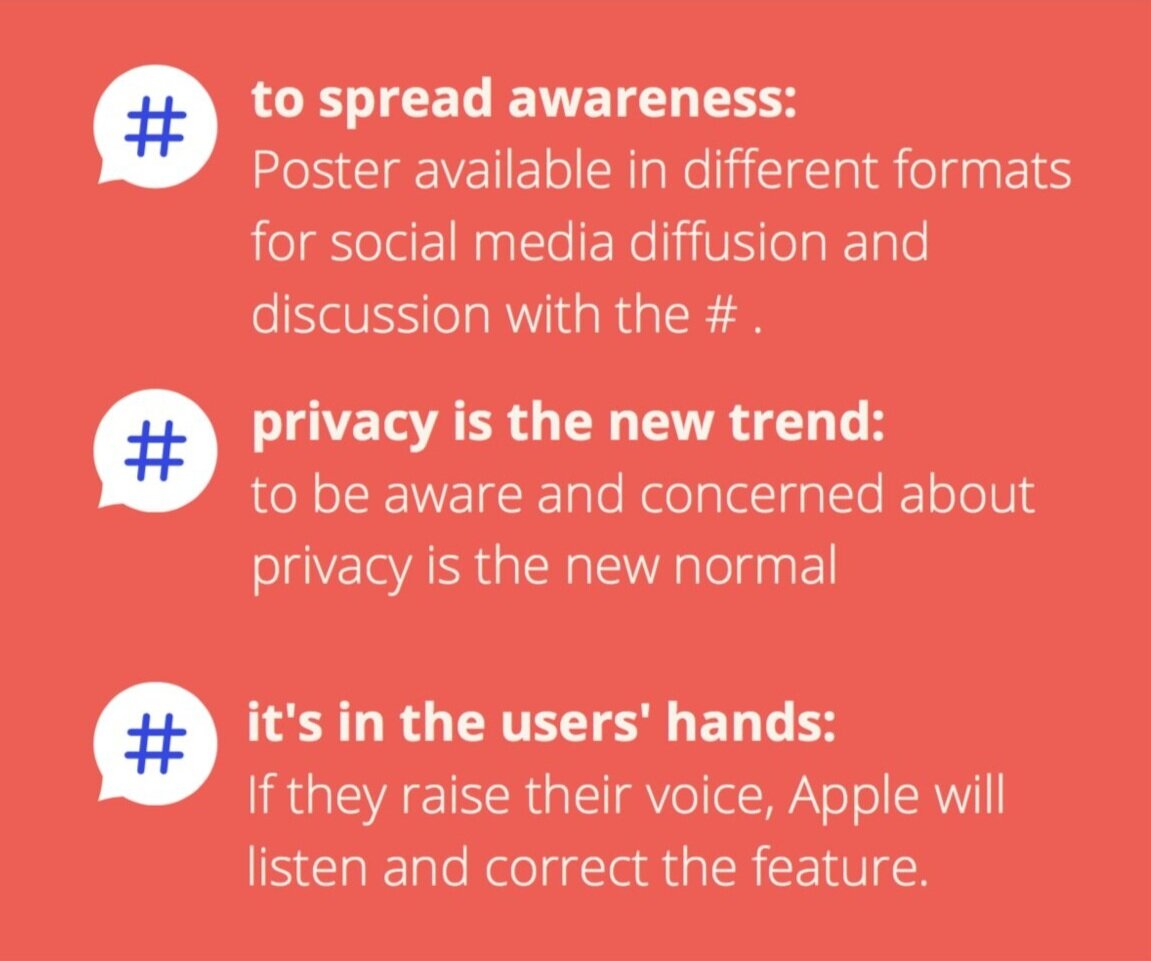Privacy is Power
“Privacy is Power”. This was the big conclusion after hours of research, debates and prototyping. It was an amazing process that taugh me to always go beyond expected. Our objective was to transform the App Store's new privacy feature and make it more effective in term of user’s privacy protection. Also, empower users with awareness of this misleading feature & convince them to petition to change it.
*Made by Carmen Espejel, Yasmine Hidouk and Camila Andrade as “The EU Team” for " Legal Creatives©.
*Winner of the 2nd prize on the Legal Design Art Gallery 2021.
Starting point:
Apple's iOS 14.3 introduced Privacy Nutrition Labels for apps sold at the App Store. Developers selling apps on the App Store must explain their privacy practices. That means detailed information concerning what data they collect, why, and what they do with it must be provided to users in the form of what looks like a food nutrition label. The goal is that users engage in deep review of the app’s privacy practices.

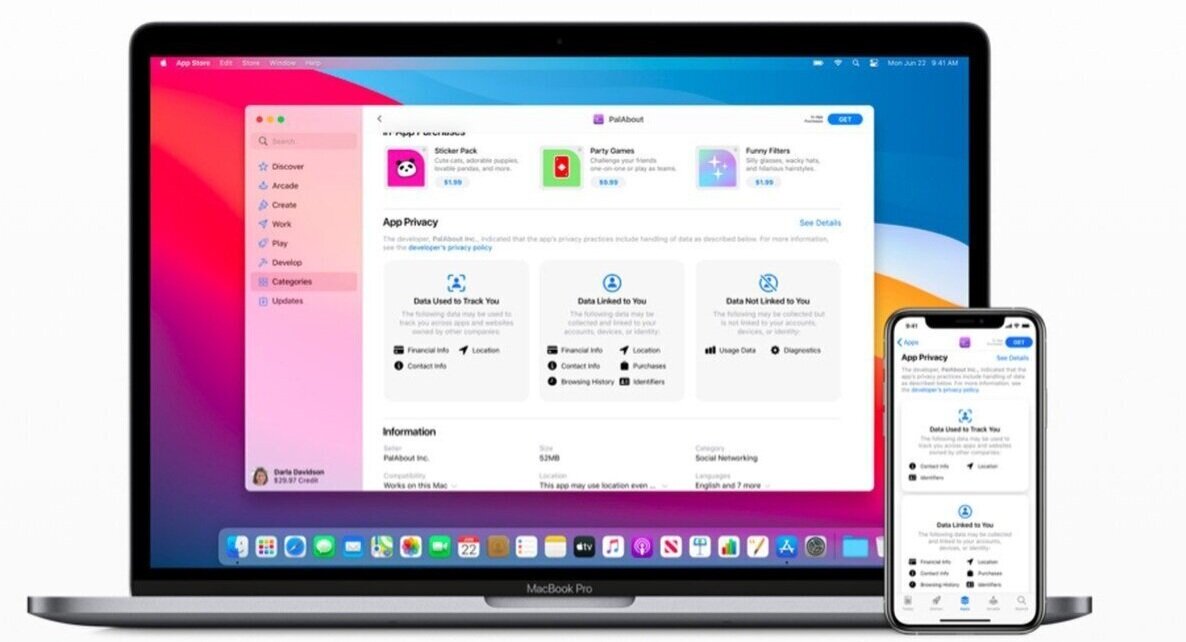
The knot:
Apple's Privacy Nutrition labels are misleading their users because Apple does not have a verification process for those App's privacy claims. Users are not aware of this. This means users' privacy will remain unprotected and without the possibility to control, which is the real and most important problem around privacy.
The process:
By analyzing the different interests from each stakeholder in this knot, it was possible to understand the users pain points and challenges. We found out that privacy stakeholders have different & contradictory motives. It was also clear that the stakeholder that could create the biggest impact with the less effort was Apple. And Apple listens to their clients.

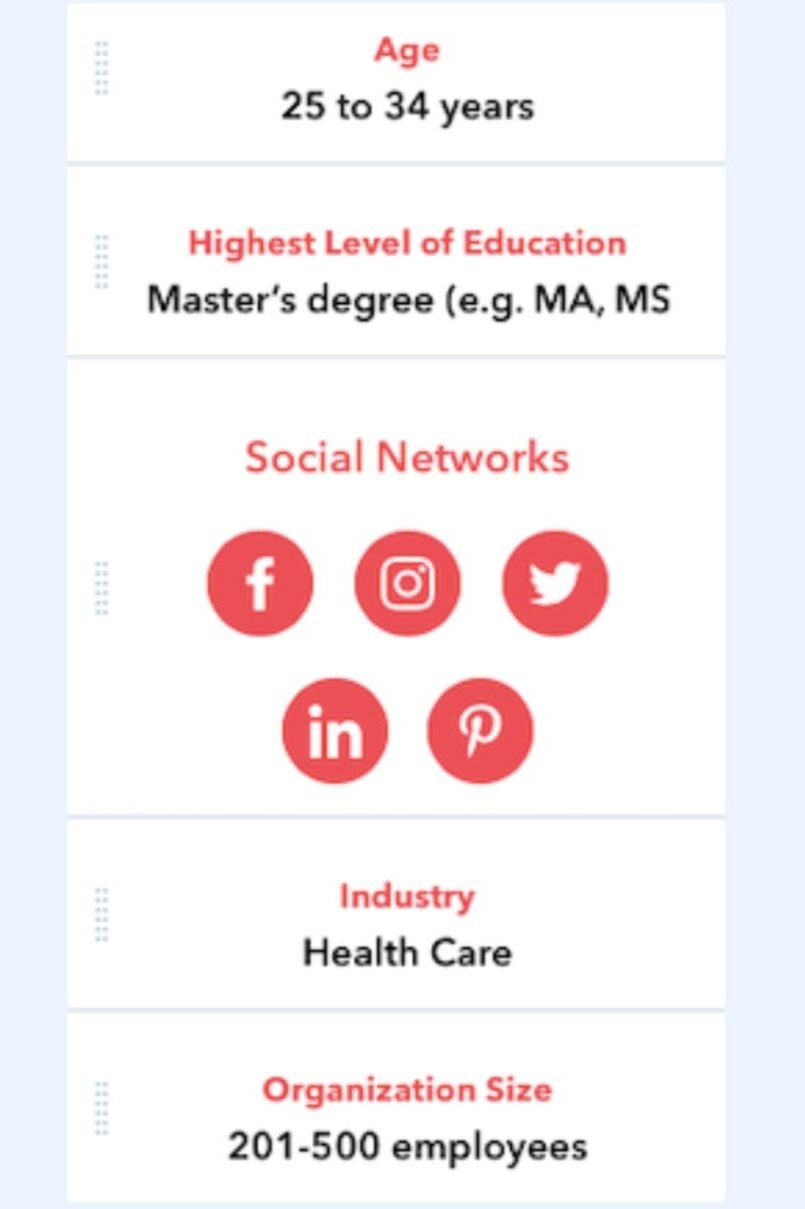
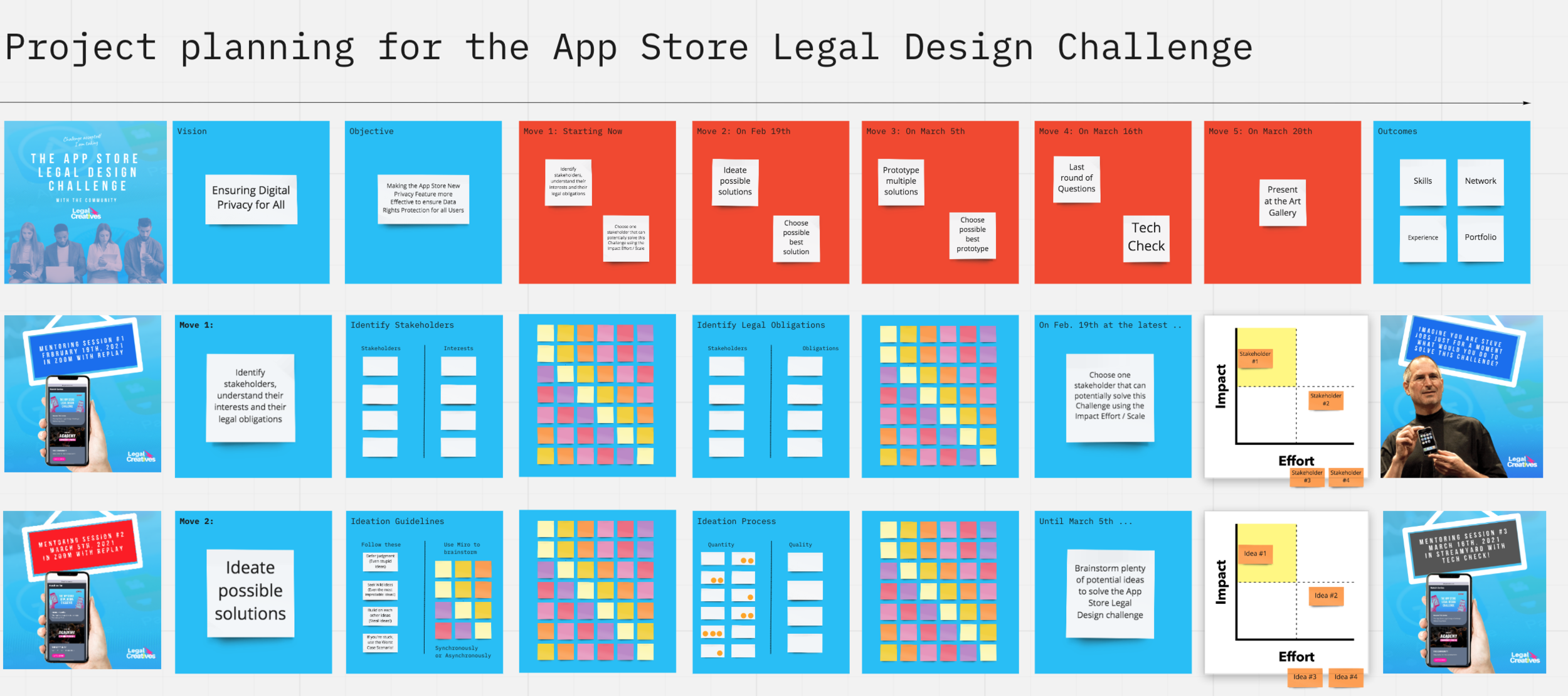
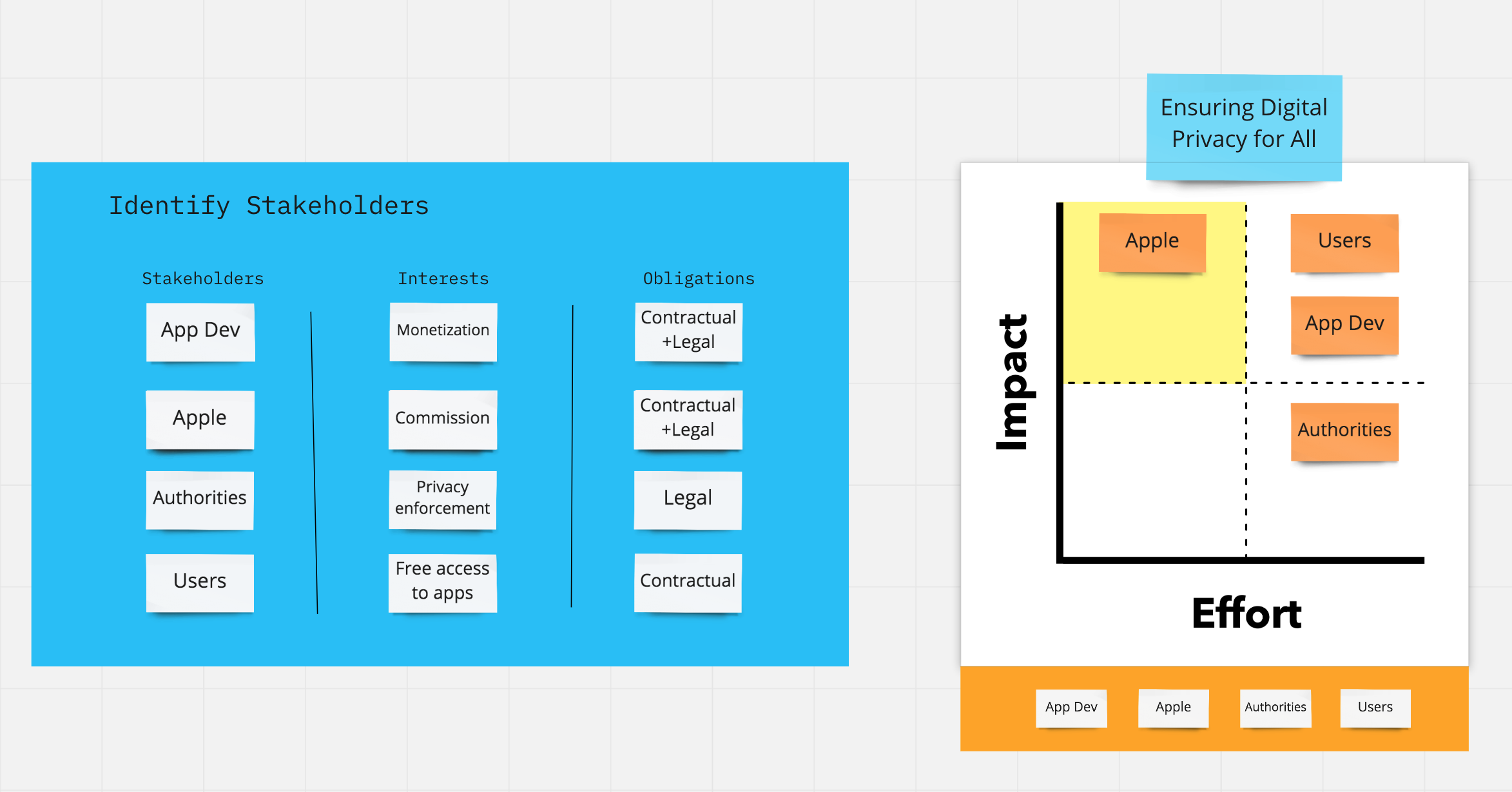

The solution:
To bring up the solution, we though about ourselves before all the knowledge this challenge research taught us. We knew about privacy issues but we didn’t know how to have effective control over it. The solution consists in an app prototype and a way to convince Apple to apply it.
The data transparency feature we prototyped was based on the existing “Screen time feature” built on iPhone.
As iPhone users start to be concerned by privacy, we found out that by making collected data more visible, transparent and controllable, privacy could be better protected and under the user’s informed control.
For this, the app would show you how many data points are collected daily, but also which app is collecting most of this information. Last but not least, the feature creates an easy access to change and control the settings on privacy permissions for each app.
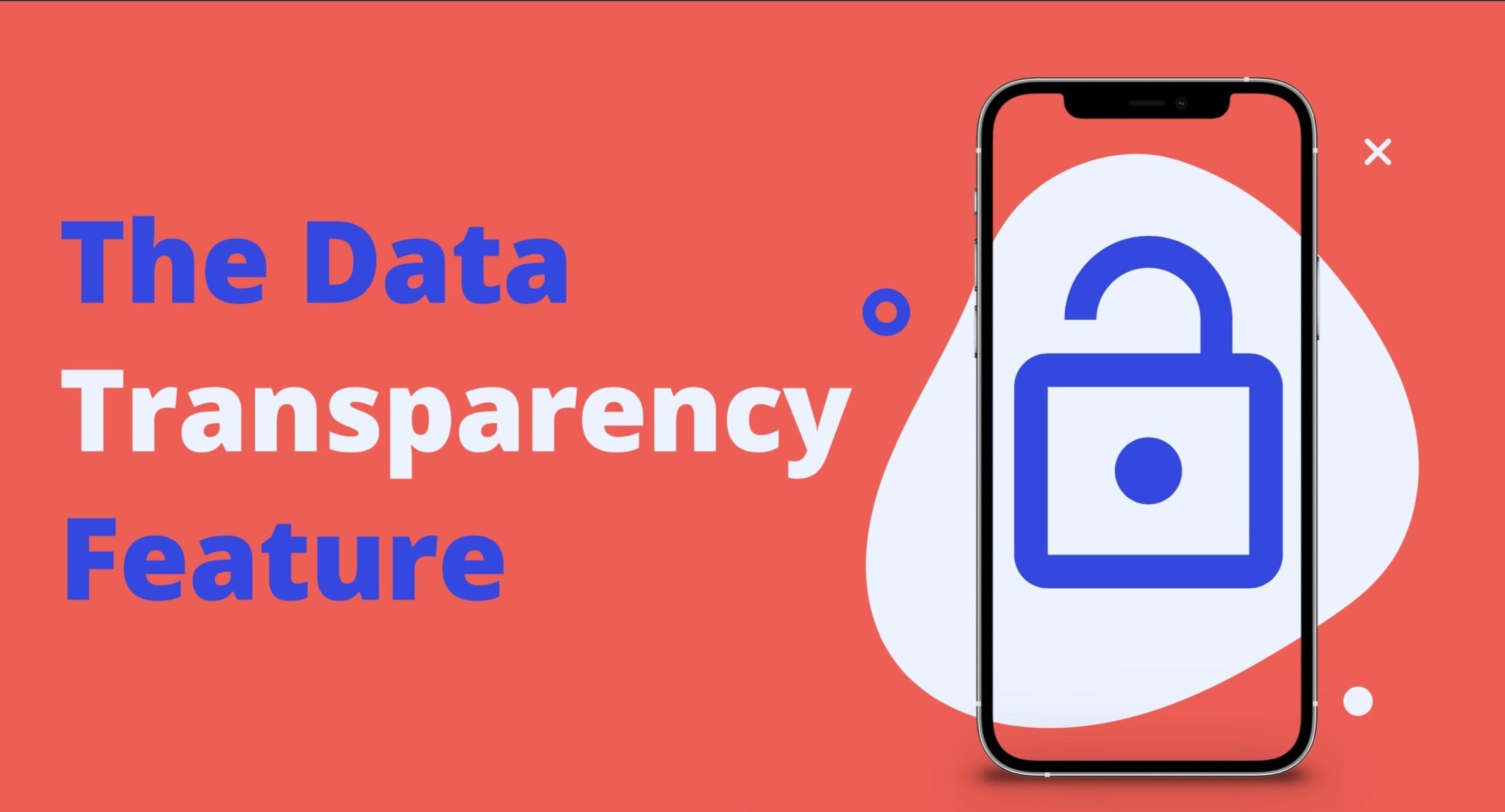
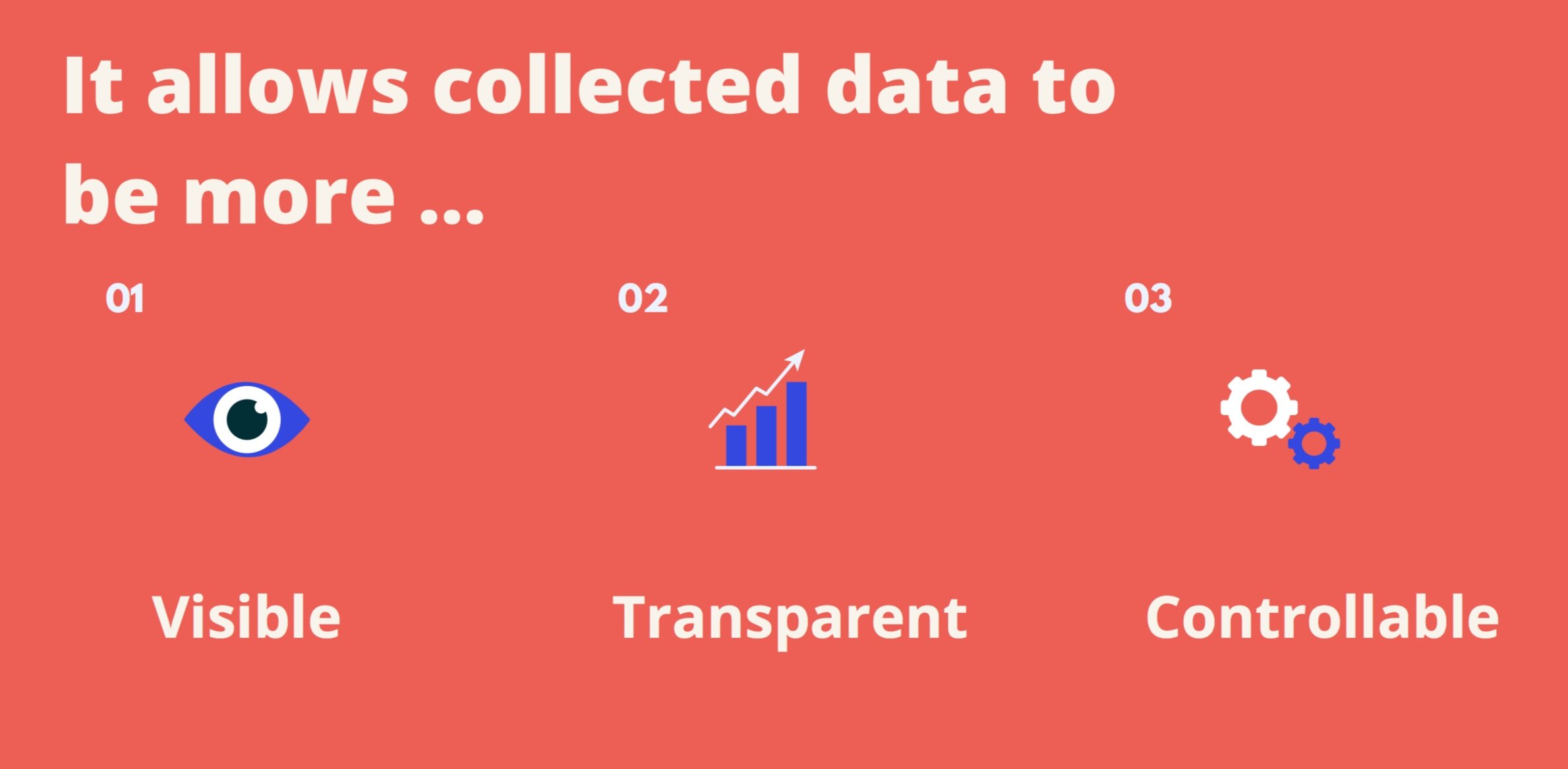
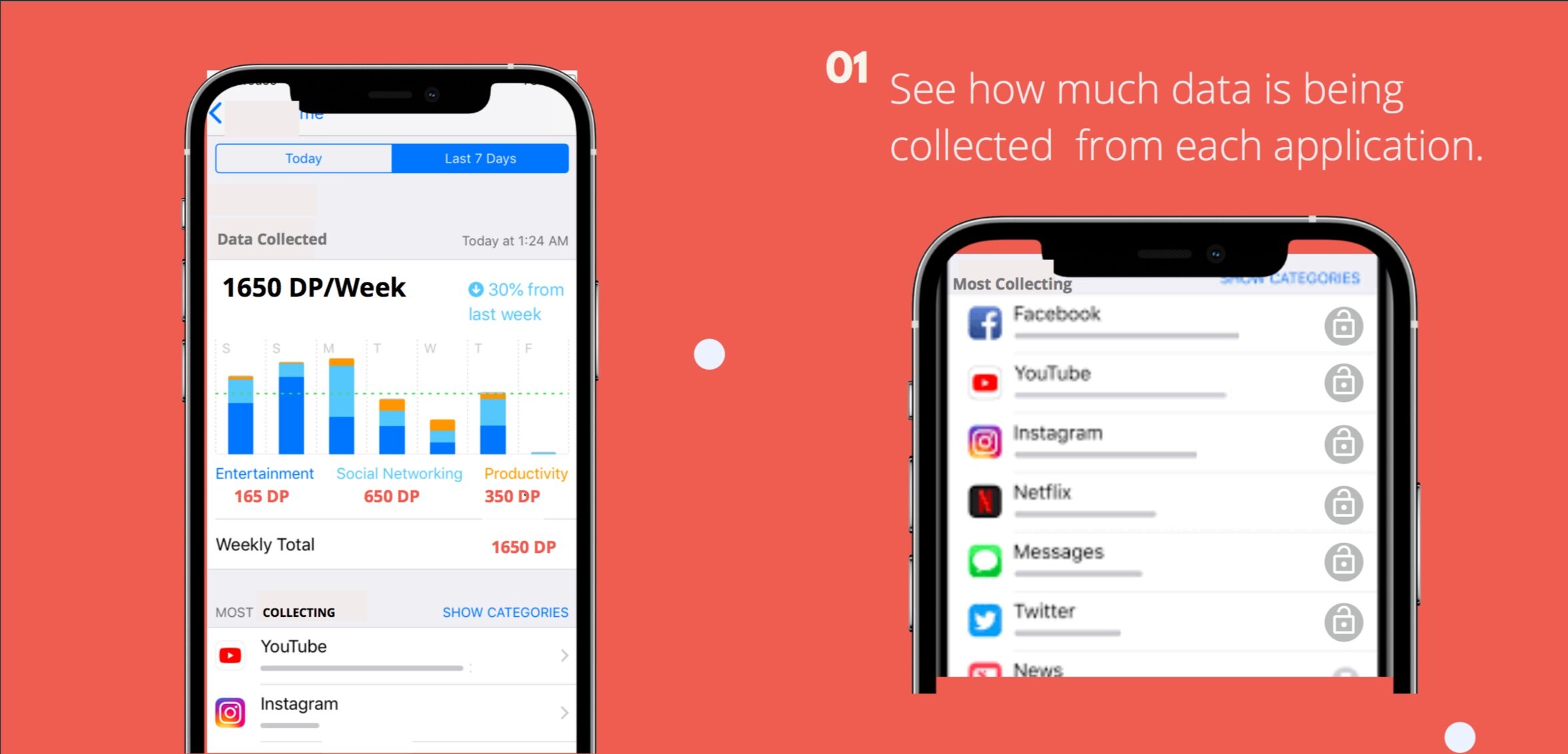
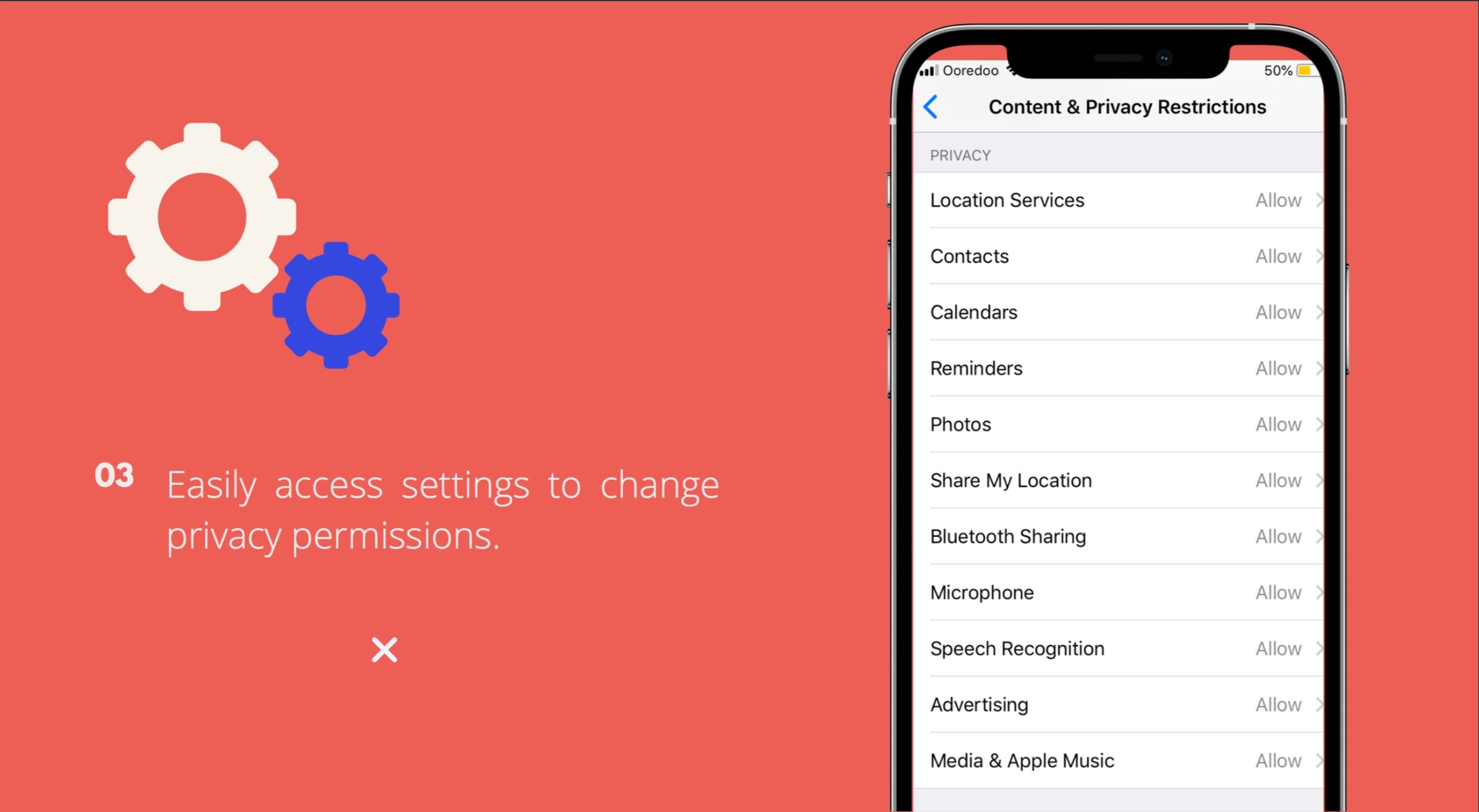
To go beyond:
One of the principles of Legal Design is applicability. This is why we included as a second part of the solution an awareness online campaign. To bring this issue to the attention of users through social media and invite them to sign a petition asking Apple to improve the existing feature seemed like the best way to implement this prototype. The hashtag #PrivacyIsPower empowers users and make privacy concerns a new trend. Users will raise their voice and Apple will listen.

